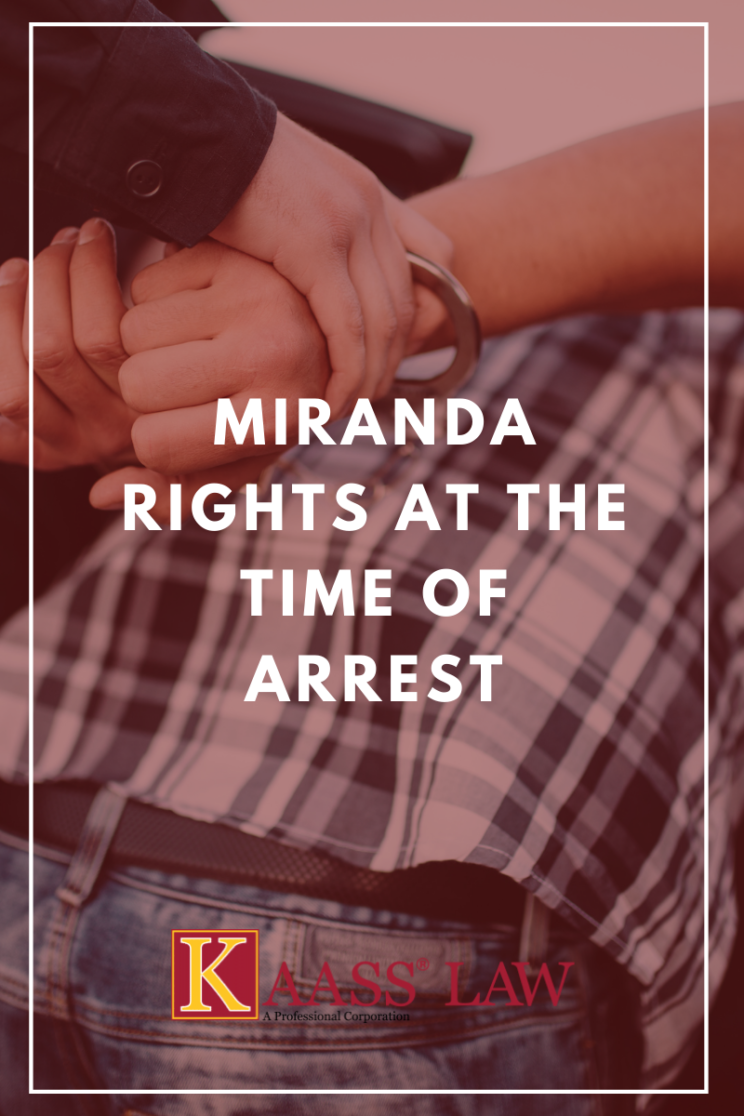What are Miranda Rights?
Miranda warnings are an individual’s constitutional right that protects them against being forced to incriminate themselves. This law is derived from Miranda v. Arizona. The court ruled that the 5th Amendment privilege against self-incrimination is intended to protect individuals from being forced to incriminate themselves.
What is a Miranda Warning?
Miranda warnings are the notification given by a police officer to a defendant once they are:
- in custody and/or
- interrogated by a police officer(s)
When Will You Know Miranda Warnings Have Been Provided?
An individual will know they have been provided their Miranda warning when a police officer states the following: “you have the right to remain silent. Anything you say can and will be used against you in a court of law. You have the right to an attorney. If you cannot afford an attorney, one will be provided for you. Do you understand the rights I have just read you? With these rights in mind, do you wish to speak to me?” This is also referred to as being “Mirandized.”
When Should You Receive Miranda Warning?
An individual will be Mirandized when the following two things occur:
- when the individual is under police custody; and
- the individual is being interrogated. Keep in mind that this does not mean that police officers
cannot ask the individual any questions such as about their name and address. It is important to note that even if an individual is in police custody, they may still not be given Miranda warnings unless police officers intend to ask incriminating questions from the individual.
Should You Waive Your Miranda Rights?
Deciding to wave Miranda rights is tricky. Once a police officer Mirandizes an individual, that individual has the right to remain silent. However, if the defendant choices to speak to the police, the individual is deemed to have waived his/her right. Should an individual choose to waive their right, they should be very careful as to what they tell the police officer without their attorney present.
Typically, police officers are looking for specific information from the suspect so as to assess whether the suspect will agree to specific facts or not. Although an individual may believe they have not done anything wrong, speaking to a police officer openly and without an attorney present may lead to stating things that can be taken out of context that may ultimately lead to the individual being charged with a crime.
How Does Miranda Warnings Work in DUI Arrests?
Miranda warnings do not work the same for DUI arrests. This is because a police officer does not necessarily have to provide the individual with Miranda warnings since the police officer may have enough evidence (i.e. from the way the individual was driving or from the smell of alcohol on their breath) to justify the DUI arrest without interrogating them.
Los Angeles Criminal Defense Attorneys
If you or someone you know has been arrested without proper Miranda rights given, contacting Los Angeles Criminal Defense Attorneys at KAASS Law at (310) 943.1171 for a free consultation.

